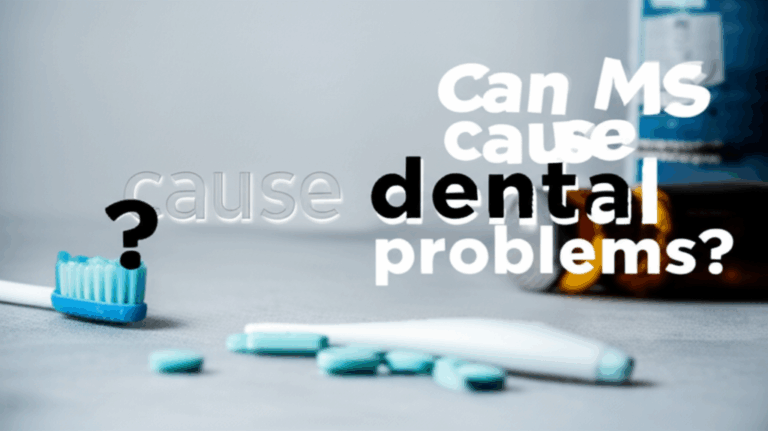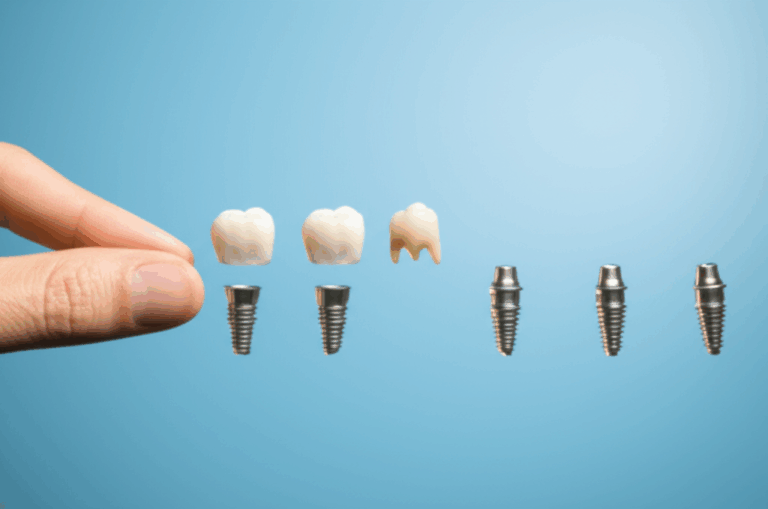
Does Aetna Cover Dental Implants? Understanding Your Aetna Dental Plan Benefits
Are you wondering if your Aetna dental insurance will pay for dental implants? This guide makes it clear and explains how Aetna deals with dental implant coverage, what you should do, and how you can save the most money. After reading, you’ll know your options, the right questions to ask, and how to make the smartest choice for your smile.
Table of Contents
Why Do People Need Dental Implants?
Losing a tooth isn’t just about how you look. It changes how you chew, talk, and even feel about yourself. Most people just eat apples or corn easily, but when you lose a tooth from an accident, tooth decay, or gum problems, eating can get hard. Dentures and bridges can slip or feel big and awkward—they’re not always easy to use.
Dental implants act like your own real teeth. The dentist puts a small titanium post (kind of like a screw) into your jawbone in the spot where your old tooth was. Then a strong, fake tooth goes on top. The result? You eat all you want and smile without worry.
But—dental implants can get really expensive. That’s why people ask, “Does Aetna pay for dental implants?”
Does Aetna Cover Dental Implants?
Here’s what matters: Aetna might cover dental implants, but it depends on the details of your own plan and the reason you need an implant.
Most people get confused because not every Aetna dental plan pays for implants. Some will only help if the treatment is required for health reasons—not just for a better-looking smile. Other plans won’t pay for dental implants at all. Lots of people only find this out when they check their Summary of Benefits or talk to someone at Aetna.
Aetna looks at things like:
- Your plan type (PPO, DMO, HMO, Medicare Advantage)
- The reason you lost the tooth, like accident or sickness
- If the dentist proves you need the implant to chew or to keep your jaw healthy
So the short answer is, it depends. Don’t worry—I’ll show you what you need to do.
Which Aetna Plans Might Cover Dental Implants?
Aetna has a bunch of different dental insurance options. Some just help with cleanings, checkups, and X-rays. Some cover more expensive treatments like dental implants.
1. Aetna Dental PPO Plans
These plans normally give you the most freedom. They usually help pay a part of big treatments like implants after you pay a deductible first. For example, your plan might pay 50% of the cost, but only up to your yearly limit (like $1,000–$2,000 each year).
- In-Network Dentists: You save more money if you use dentists in the Aetna network.
- Out-Of-Network: You might end up paying more.
2. Aetna DMO or HMO Dental Plans
These plans make you see dentists that are in their network. They mostly pay for simple things like cleanings and fillings. Dental implant coverage is usually small or not there at all. If they pay for implants, you may have to get approval first or see a dentist they pick.
3. Aetna Medicare Advantage with Dental Benefits
If you have Aetna Medicare Advantage, sometimes dental is included. Coverage changes a lot from plan to plan. Some might help pay for implants, but some won’t. Always check your plan papers.
4. Aetna Supplemental Dental Plans
A few Aetna plans are made for more coverage. Some include big things like implants. If your basic plan doesn’t pay for implants, look at buying extra dental insurance.
Tip: Don’t just look at the monthly price. Always also see what’s covered—especially for big things like implants!
For more on how different dental labs help build strong implants and teeth, you can learn about china dental lab services.
What Parts of Dental Implants Does Aetna Cover?
Dental implants have a few main pieces. It’s important to know which ones Aetna might help pay for so you don’t get any surprise bills.
- Implant Post (Fixture): The “root” part that goes into your jaw.
- Abutment: The connector between the post and the tooth on top.
- Crown or Fake Tooth: The part you see when you smile, usually made of porcelain or ceramic.
- Other Procedures: Some plans also help pay for pulling a tooth, adding bone, X-rays, or even medicine to help with surgery.
Your plan might pay for some, all, or none of these things, depending on your Summary of Benefits.
If you want to learn more about implant tricks, visit an implant dental laboratory resource.
What Are Common Exclusions and Limits?
Dental insurance companies, even Aetna, set lots of rules and limits. You have to know these to avoid big surprise bills.
Common exclusions and limits:
- Cosmetic Implants: If you want an implant just for looks, it probably won’t be paid for.
- Pre-existing Conditions: Some plans don’t pay for implants if you lost your tooth before you got that insurance.
- Annual Maximum: When Aetna pays up to a certain amount in one year, you pay the rest out of your pocket.
- Waiting Periods: Lots of plans make you wait 6 to 12 months before they pay for implants or big dental work.
- Unproven Procedures: If a treatment isn’t approved by the ADA (American Dental Association) or is called “experimental,” it probably isn’t covered.
- Dentists Not In The Network: If you use a dentist that’s not in the network, it can cost more and sometimes not be covered at all.
Problem: Most people think “dental insurance = all paid for.”
Agitate: Then they get a big bill, which is a very bad surprise!
Solution: Check your policy details—or just keep reading below.
How Can I Find Out If My Plan Covers Implants?
It’s not hard to find out if your plan pays for implants. Here’s a simple way:
Step 1: Get Your Policy Papers
- Summary of Benefits and Coverage (SBC): Shows what’s paid for and what’s not.
- Explanation of Benefits (EOB): Shows what Aetna paid after a visit.
Step 2: Call Aetna
Use the phone number on your dental card or log in online. Ask:
- “Can you tell me about my coverage for dental implant code [ask your dentist for the code]?”
- “Is there a waiting time for dental implants?”
- “Do you pay for tooth pulling, bone grafts, or crowns?”
Step 3: Ask For An Estimate First
Have your dentist send a pre-authorization (or pre-treatment estimate) to Aetna before you start. It won’t make you get the treatment, but it lets you see what Aetna will pay, what you’ll pay, and what needs approval.
If you aren’t sure what to say, the people at your dentist’s office can help you ask the right questions.
To learn about fixes for broken teeth from expert labs, you can check the latest trends in crown and bridge lab technologies.
How Much Will Dental Implants Cost With Aetna?
Implants aren’t cheap—a single one usually costs $3,000 to $6,000 for one tooth. If you need extra work, like bone or gum fixes, the price can go up even more. Dental insurance usually won’t cover all of it, either.
Here’s a look at the usual numbers:
| Item | Typical Amount |
|---|---|
| Single Implant (Uninsured) | $3,000 – $6,000 |
| Full Arch Implants (All-on-4) | $20,000 – $50,000+ |
| Insurance Coverage For Implants | 50% (if covered) |
| Annual Coverage Maximum | $1,000 – $2,000 (most plans) |
| Waiting Period For Major Services | 6-12 months |
Let’s look at an example:
- A single implant costs $4,000.
- Your plan pays 50% of big treatment, after a $500 deductible.
- The yearly max is $2,000.
So you pay $500 (deductible), then the rest is $3,500. The plan pays 50% of that ($1,750), but only up to $2,000 for the year. You pay the rest ($2,250 yourself).
To be clear: Even with insurance, implants are a big cost. Always get an estimate first! Some people save money by doing part of the work one year and the rest the next year, so they can use more of their yearly coverage.
Ways To Maximize Your Aetna Dental Implant Benefits
Many people get stuck with big bills or denied claims. Here’s how you can get the most out of your coverage.
- Use In-Network Dentists: Dentists in the Aetna group have lower set prices.
- Show Medical Need: If you lost a tooth because of injury or illness, or it stops you from chewing, have your dentist write notes and send X-rays when asking Aetna for approval.
- Plan Your Time: If you’re almost at your yearly limit, ask if you can start some work now and finish later, so you can use more than one year’s coverage.
- Think About Extra Coverage: If you need lots of dental work, maybe buy extra dental insurance or a discount plan.
- Appeal If Denied: If your claim gets turned down, fight it! Get your dentist’s help—sometimes it’s a mistake.
And remember: Implants last a long time—most work well even after 10 years.
Real-Life Example: Sarah’s Story
Sarah had an Aetna Dental PPO plan. After she fell at school and lost her front tooth, she needed to fix it. She read her Summary of Benefits but didn’t understand it. She called Aetna and talked to a helpful person, who explained her plan paid 50% for the post and crown, but not the bone work she needed first.
Her dentist sent a pre-authorization. Sarah found an in-network surgeon to pay less. Her total bill was $4,500. Aetna paid $2,000 (the yearly limit) and Sarah paid $2,500. She did the treatment in two parts over two plan years, so she used some benefits from each year.
Sarah says: “Always ask first and don’t be shy about asking your dentist or Aetna for help!”
Frequently Asked Questions (FAQ)
Q: Does Aetna cover dental implants for everyone?
A: No. It depends on your exact plan and if the work is “medically needed.” For looks only? It’s usually not paid.
Q: Will Aetna pay for bone grafts or sinus lifts?
A: Some plans do, if you need it for the implant. Check your plan to be sure.
Q: I lost a tooth long ago. Does that count as pre-existing?
A: It could. If you lost it before your insurance started, some plans don’t pay. Ask Aetna about their rule.
Q: Do I have to use an in-network dentist?
A: You’ll save more if you do. If you go out-of-network, you’ll pay more or might not get covered.
Q: How much does an implant cost with no insurance?
A: One implant often costs $3,000 to $6,000 or more, depending on where you live and what you need.
For more about keeping your teeth healthy and stopping problems, check out teeth health.
Summary: What You Need To Know
- Aetna might pay for dental implants—but check your exact plan!
- Use in-network dentists and always get approval before treatment.
- Proof that it’s needed for health is important. Good dental records help.
- You’ll pay some out of your own pocket for deductibles, co-insurance, and yearly limits.
- There might be waiting times or rules for old tooth loss.
- Compare plans and plan your treatment times to get the most value.
- If your claim gets denied for no good reason, fight it. Don’t give up.
Want a great smile that lasts? Take action—read your plan, call Aetna, and talk with your dentist to get the best for your teeth and your wallet!








